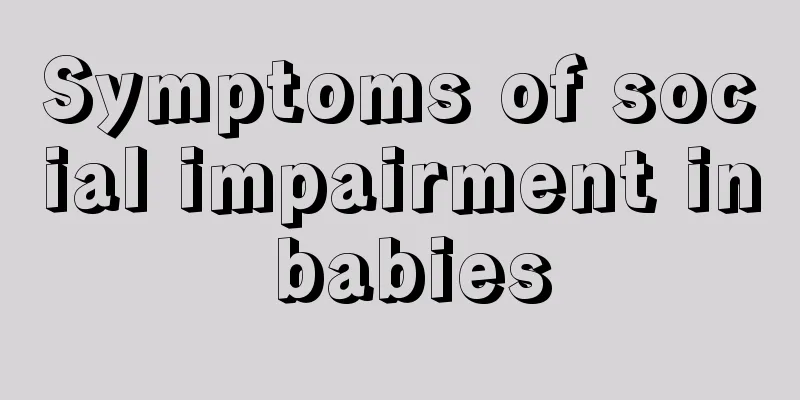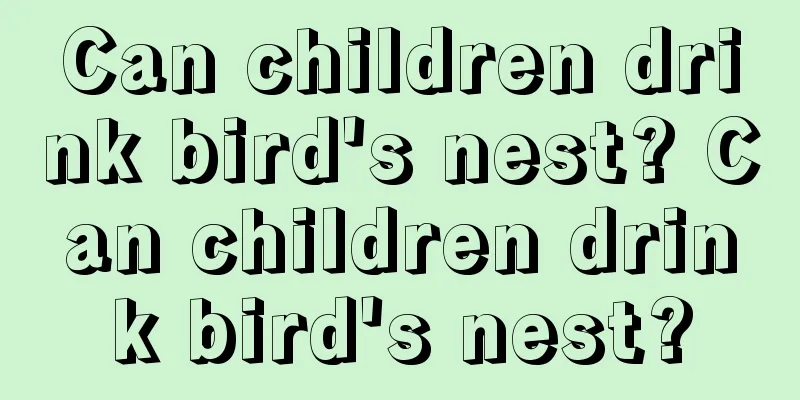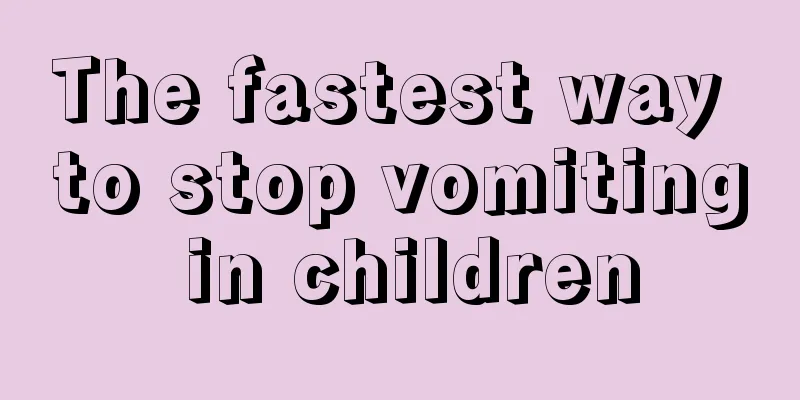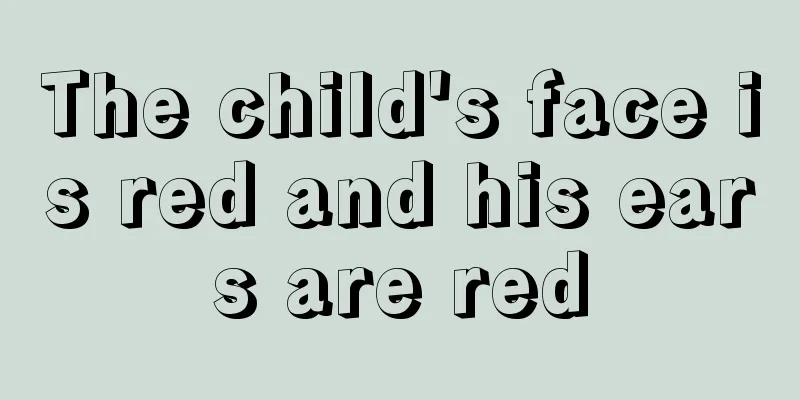What are the typical symptoms of acute nephritis in children?
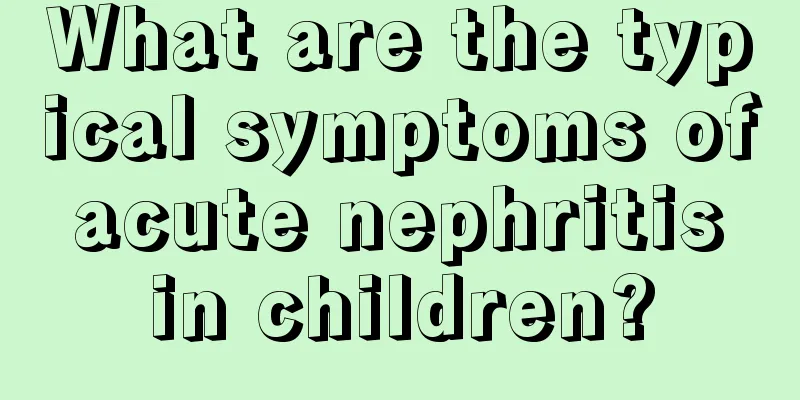
|
Acute nephritis in children is a very common disease. The more common symptoms of this disease are edema, hematuria, and oliguria. The incidence of this disease is relatively rapid, so it is best to take the child to a regular and timely treatment. During the treatment, you must guide the child correctly and pay as much attention as possible to physical exercise for the child to improve the body's disease resistance. What causes acute nephritis in children? The occurrence of acute nephritis is closely related to streptococcal infection. Of course, infections by other bacteria, viruses, and protozoa can also cause acute nephritis. Tonsillitis is often caused by beta-hemolytic streptococci. Beta-hemolytic streptococci can produce antigens and antibodies through the blood. When the antibodies pass through the kidneys, they are deposited on the glomerular basement membrane. On the basement membrane, when the antigen and antibody produce an immune reaction, they attract complement to participate, thus leading to the occurrence of acute nephritis. Impetigo is generally caused by Staphylococcus aureus, which also produces similar antigens and, through similar pathways, produces an immune response of antigens, antibodies and complement in the glomerular basement membrane, leading to the occurrence of acute nephritis. The function of the kidneys is to continuously filter and excrete waste from the body. If there is a problem with the kidney's working process and the kidneys cannot remove these wastes normally, hematuria and proteinuria will occur. Early symptoms of acute nephritis in children Nephritis in children generally refers to glomerulonephritis, which is a diffuse, non-suppurative disease of both kidneys. It often occurs in school-age children, most commonly between 6 and 9 years old. It is often secondary to bacterial or viral infection of the upper respiratory tract. However, the onset of nephritis is not an inflammation caused by direct damage to the kidneys by bacteria or viruses. Instead, it is due to a series of autoimmune reactions in the body caused by the invasion of pathogens into the human body, which causes kidney damage and leads to the disease. The early symptoms of pediatric nephritis are not very obvious and not easy to detect. Many times, it is already too late when it is discovered, and some have even reached the uremia stage. Although the early symptoms of pediatric nephritis are not very obvious, it does not mean that they do not exist. The following introduces the early symptoms of pediatric nephritis. We hope that everyone will be more vigilant and achieve early diagnosis and early treatment to reduce the harm of the disease. One of the early symptoms of chronic nephritis in children: eyelid swelling The main reason for eyelid edema in the early stage of chronic nephritis in children is that the kidney's excretion and regulation function of water is damaged, which causes an increase in water and sodium in the child's body. Excess water accumulates in the loose tissue of the body, and the eyelids are a part with more loose tissue. The characteristic of eyelid swelling is that it is more obvious when you wake up in the morning and decreases after activity. Early symptoms of chronic nephritis in children: hematuria Hematuria can be divided into gross hematuria and microscopic hematuria. Gross hematuria is hematuria that can be seen with the naked eye. The urine is meat-washing water-like, turbid and red. Some children have blood streaks or blood clots in their urine. Microscopic hematuria can only be detected under a microscope, with more than 1 red blood cell count per high-power field of view. Hematuria is the most common symptom in most children with chronic nephritis. Of course, there are many causes of hematuria, and nephritis is just one of them. Therefore, when parents find that their children have unexplained hematuria, they should seek medical attention immediately. Do relevant tests according to the doctor's advice, and if necessary, do a routine urine test to rule out the possibility of renal hematuria. Early symptoms of chronic nephritis in children: increased foam in urine The foam in the urine increases, mainly small foams, which are connected to each other and cannot dissipate for a long time, indicating that the child's urine contains protein and high tension. Of course, this symptom has poor accuracy. If you don't have a certain level of medical knowledge, it will often be ignored by parents or children. The easiest way is to go to the hospital to check urine to rule out the possibility of proteinuria. Because the earliest change in chronic nephritis is urine. Early symptoms of nephritis in children 4: Patients with moderate or above chronic renal insufficiency often have anemia Symptoms such as fatigue, dizziness, and pale complexion may occur. If patients with anemia exclude blood system diseases, attention should be paid to whether they have chronic renal insufficiency. Early symptoms of nephritis in children 5: About 1/3 of patients with glomerulonephritis will have high blood pressure Symptoms include headache, memory loss, poor sleep, etc. Patients who seek medical attention due to the above symptoms and are found to have high blood pressure must have a urine routine test, especially young patients. The sixth early symptom of nephritis in children: Acute attacks of acute glomerulonephritis and chronic glomerulonephritis are often related to pharyngitis, tonsillitis, upper respiratory tract and skin infections. Therefore, urine routine should be checked when suffering from the above infectious diseases. |
<<: Children's nasal discharge blood
>>: What are the symptoms of acute mumps in children?
Recommend
Is it good to give your baby a bath in the morning?
Families are still troubled about the issue of ba...
What should I do if my two-month-old baby doesn't like to drink milk powder?
Once their baby shows that he doesn’t like to dri...
Three-year-old boy cannot speak
We will find that children start to talk when the...
How to treat baby prickly heat
Summer is hot, which is the peak period for babie...
How to improve children's memory
Many parents cannot accept the symptoms of childr...
Can children drink cocktails?
Cocktails have a certain alcohol content, so it i...
How to treat children's autumn diarrhea
Children's physical health has always been a ...
Newborn baby's stool is a little green
Newborn babies are always breastfed, so they alwa...
Treatment for excessive tearing and mucus in babies
Babies' tears and eye mucus look very scary. ...
What should I do if my child has a hoarse voice?
If a child has a hoarse voice, it is probably cau...
What to do if a child's tooth root is broken
Children are naughty by nature, so parents must t...
What to do if you wake up coughing in the morning
Many people may experience coughing when they wak...
Don't throw away your child's "waste", it can save lives at critical moments
Scientists have found that the stem cells in chil...
What should we pay attention to during the recovery period of neonatal pneumonia?
A little discomfort in a newborn baby can cause a...
Is moxibustion effective in treating indigestion?
Food accumulation refers to children eating too m...

